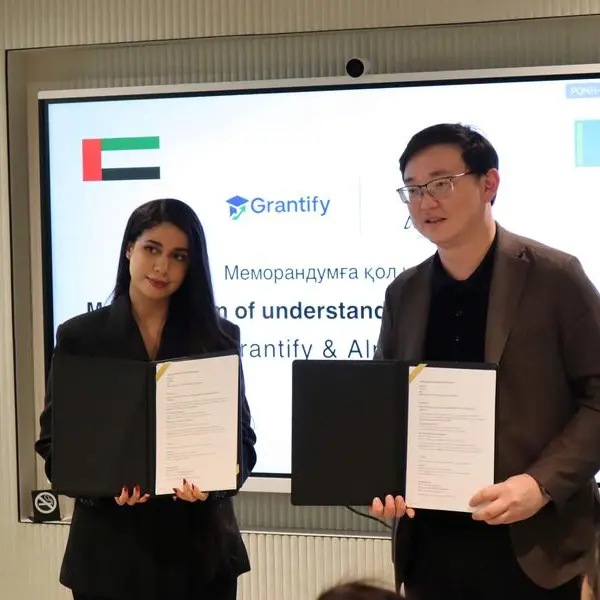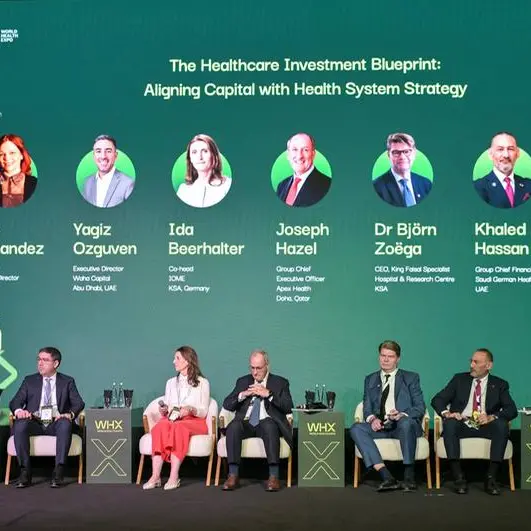WARC Global Advertising Trends: FMCG & COVID-19
30 March 2020 -- The global economy is set to fall into recession, with the advertising market likely to follow in the first half of this year, though FMCG brands are better-placed to weather the storm finds WARC, the international marketing intelligence service.
The Purchasing Managers' Index (PMI) - a monthly survey of trading conditions among purchasing managers in private sector companies - for February and March show the worst results for the services sector in recent history across the US (39.1, whereby a value below 50 indicates decline), UK (35.7), Japan (32.7), the Euro area (28.4) and China (26.5).
The COVID-19 crunch is filtering through to advertising; RTL, Europe's largest broadcaster, has stated that COVID-19 is hitting ad bookings, while in the US NBCUniversal also expects a material impact, not least because its Olympic coverage has now been postponed.
UK broadcaster ITV reports the same, notably within the travel sector (5% of its 2019 ad revenue, or £91m) and expects ad growth to be down 10%. JCDecaux is anticipating a 10% dip too.
Baidu in China advises Q1 revenue will be down by as much as 18% while other online pure players, such as Alphabet, Twitter and Facebook are also exposed - digital channels are often the easiest to switch off in a time of crisis.
The last financial crisis removed $60.5bn from the advertising market, with all media apart from online search recording declines in investment. The market took eight years to recover from this shock after accounting for inflation and currency fluctuations.
James McDonald, Managing Editor, WARC Data, and author of the research, says: "The current downturn may not hit FMCG as hard as other product sectors, but it is likely to be consequential in terms of changing consumer purchasing behaviour. A sharp increase in e-commerce activity may result in online players becoming more significant as the gatekeepers to FMCG shoppers."
FMCG better-placed to weather the storm
During the last advertising recession in 2009, advertising investment among the food and drink sector fell at a far softer rate than the wider industry. In the UK, the food sector reduced investment by 1.3% to £860m and the drinks sector by 2.3% to £321m. This compares to a 5.6% fall for total FMCG (to £1.98bn) in the UK and an 11.7% dip for the total UK market (to £13.11bn). TV was by far the hardest-hit advertising medium.
Sales revenue was down for each of the five largest FMCG companies in 2009, though only P&G (-11.7% to $7.52bn) and Coca-Cola (-6.9% to $2.70bn) cut ad investment. As a share of sales revenue, advertising spend held during the last crash at Unilever (13.3% of sales, or €5.30bn), P&G (9.8%, $7.52bn), Nestlé (33.7%, CHF36.27bn), Coca-Cola (9.0%, $2.70bn) and L'Oréal (30.8%, €5.39bn).
The FMCG ad market was worth $97.2bn in 2019, a 15.6% share of global advertising spend. Much of this money is spent online; for example, 55.8% - $28.55bn - of ad budgets in the household and domestic sector is invested in online advertising. This compares to a 26.9% share ($25.59bn) for toiletries & cosmetics.
The food and drinks sectors spend most on TV, at $17.0bn and $16.28bn respectively. Brand-building is important within these sectors as products are sold via third-party retailers, not directly to consumers. These sectors are better-placed to weather the impending recession as shoppers continue to buy the essentials; the apparel, automotive, retail (non-food), consumer durables and leisure & tourism sectors will be disproportionately affected by a downturn.
FMCG sales boom on Amazon and Tmall as consumers adjust to 'the new normal'
One in four is now shopping more online due to COVID-19. Millennials (39%) are more likely to do so, followed by Gen Xers (25%). Higher earners are also significantly more likely to than lower earners (48% versus 15%). Most shoppers are going online at the expense of visits to the store; this is particularly true in India (55% of consumers) and China (50%), but also notable in Italy (31%), the US (23%), and the UK (18%).
A WARC analysis of Edge by Ascential data shows sharp rises in the sale of FMCG products on Amazon in the US and UK over the last few weeks, with growth far exceeding both Amazon Prime Day and Black Friday. In the US, sales of hand sanitiser were up by over 650% compared to a year earlier, and 450% compared to Prime Day. Sales of pantry staples, vitamin C and disinfecting wipes more than doubled. Nielsen also recorded sharp rises in grocery sales across all US outlets, notably for powdered milk (+85%), dried beans (+37%), canned meat (+32%), and rice (+25%).
The picture was similar in the UK; sales of antiseptics & disinfectants were up by almost 300% on Amazon, while sales of soaps & hand wash trebled. In China, sales of face masks, oral mouthwash, snacks & confectionary and alcohol have more than doubled, according to data from Yimian.
The upshot of increased e-commerce activity is that online players may become more significant as the gatekeepers to FMCG shoppers. For the big manufacturers, this may increase the importance of DTC or subscription offers. Consumers are now 'living a new normal', and crisis-buying habits may become permanent behaviours.
A summary of WARC's Global Ad Trends - FMCG & COVID-19 report is available here
Other key COVID-19 information on WARC Data this month
Consumer sentiment:
- Consumers split on how brands should advertise
- Consumers expect businesses to step-up and help tackle COVID-19
- Six-in-ten Britons think it's unacceptable to bulk-buy
- Brands should help keep consumers informed
- Over 80% of consumers think brands should offer flexible payment
Media Consumption
- Gen Z is driving changes in COVID-19 media habits
- Consumers are reading more online news and watching more linear TV
- COVID-19 makes mobile gaming and short video more popular in China
Consumer behaviour
- E-commerce shopping more frequent because of COVID-19
- Indonesia lags APAC for social distancing
- Nine in ten consumers have changed their behaviour because of COVID-19
WARC is running a special series on marketing in the COVID-19 crisis available here
Global Ad Trends, a bi-monthly report which draws on WARC's dataset of advertising and media intelligence to take a holistic view on current industry developments, is part of WARC Data, a dedicated independent and objective one-stop online service which rigorously harmonises, aggregates, verifies and evaluates data from over 100 reputable sources, including Nielsen, featuring current advertising benchmarks, forecasts, data points and trends in media investment and usage.
WARC Data is available by subscription only. For more information visit https://www.warc.com/data
-Ends-
For further information, please contact:
Amanda Benfell
Head of PR & Press, WARC
+44 (0) 20 7467 8125
amanda.benfell@warc.com
www.warc.com
WARC - a global authority on advertising and media effectiveness
WARC is part of Ascential: the path-to-purchase company that combines intelligence, data and insights to drive growth in the digital economy. We do this by delivering an integrated set of business-critical products in the key areas of product design, marketing and sales.
WARC powers the marketing segment by providing rigorous and unbiased evidence, expertise and guidance to make marketers more effective. WARC services include best practice guides, case studies, research papers, special reports and advertising trend data, webinars, awards, events and advisory services.
WARC has 1,200 client companies, 75,000 active users in 100+ countries; collaborates with 50+ industry partners; has offices in the UK, US, Singapore and Shanghai.
WARC Data - the most rigorous and accurate benchmarks for media planning and strategy in the world
WARC Data sets new industry-standard for net advertising investment due to our unique methodology: HAVE. We harmonise, aggregate, verify and evaluate data to provide expert analysis drawn from over 40 years of experience.
Our sources now, include a collaboration with Nielsen, allowing users to benchmark their strategy by category, channel and country.
WARC Data - methodology
WARC's advertising expenditure data are net of discounts, include agency commission and exclude productions costs.
Data is drawn from media owners - either directly or via the industry bodies in each market. Nielsen's data are, for the most, reported at a gross level and are calculated by applying rate card prices to volume.
Through a collaboration, WARC has now harmonised Nielsen's gross figures with net media owner data to create an entirely new and unique measure of advertising investment across 19 product verticals in 25 markets. The harmonisation factors in the formats Nielsen monitors and pairs these with the formats offered by media owners; totals are therefore balanced to account for any lack of coverage in the Nielsen data.
This results in trustworthy data, far closer to reality than equivalent data from other sources. All other data are verified prior to publication, we ensure our partners use watertight approaches to market monitoring.
© Press Release 2020Disclaimer: The contents of this press release was provided from an external third party provider. This website is not responsible for, and does not control, such external content. This content is provided on an “as is” and “as available” basis and has not been edited in any way. Neither this website nor our affiliates guarantee the accuracy of or endorse the views or opinions expressed in this press release.
The press release is provided for informational purposes only. The content does not provide tax, legal or investment advice or opinion regarding the suitability, value or profitability of any particular security, portfolio or investment strategy. Neither this website nor our affiliates shall be liable for any errors or inaccuracies in the content, or for any actions taken by you in reliance thereon. You expressly agree that your use of the information within this article is at your sole risk.
To the fullest extent permitted by applicable law, this website, its parent company, its subsidiaries, its affiliates and the respective shareholders, directors, officers, employees, agents, advertisers, content providers and licensors will not be liable (jointly or severally) to you for any direct, indirect, consequential, special, incidental, punitive or exemplary damages, including without limitation, lost profits, lost savings and lost revenues, whether in negligence, tort, contract or any other theory of liability, even if the parties have been advised of the possibility or could have foreseen any such damages.



















